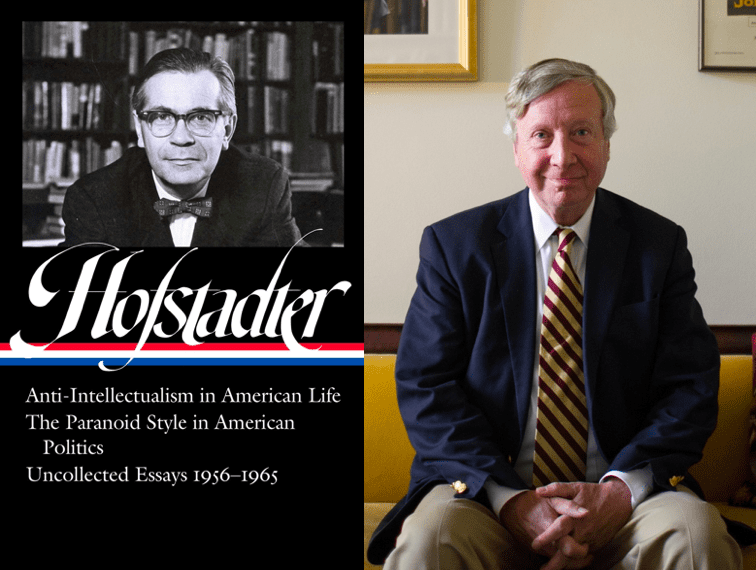Sean Wilentz is George Henry Davis 1886 Professor of American History. His book “Richard Hofstadter: Anti-Intellectualism in American Life, The Paranoid Style in American Politics, Uncollected Essays, 1956-1965” was published in April 2020 by the Library of America. This retrospective Q&A is part of an effort to acknowledge all the wonderful books published early in the pandemic.
How did you get the idea for this project?
For a long time, I wondered why the Library of America didn’t include more historians and historical writing. History is, after all, one of the literary arts, and the United States has produced superb historical prose. Yet apart from Henry Adams, Francis Parkman, and, in more modern times, Barbara Tuchman, that was about it in the LOA. So I quietly began a campaign. Richard Hofstadter was at the top of my list, and at long last, they said yes.
How has your project developed or changed throughout the research and writing process?
Thanks to the superb editorial staff at the Library of America, the preparation of each volume is largely a straight-forward matter, adhering to a long-established formula. We knew from the start that this volume, one of three we projected, would include two of Hofstadter’s books, Anti-Intellectualism in American Life and The Paranoid Style in American Politics and Other Essays, plus his uncollected essays from the late 1950’s and early 1960’s. Then, if there was still room, we hoped to include unpublished pieces as well, which led to fascinating finds. Poring over Hofstadter’s papers at Columbia turned up, among other things, the full manuscript of a revealing and largely unknown autobiographical essay. Then, out of the blue, a scholar of Hofstadter’s work turned me on to another scholar in London who’d turned up the script for a BBC radio broadcast in 1959, on the paranoid style in right-wing politics — an early foray into the subject that illuminates Hofstadter’s later thinking.
What questions for future investigation has the project sparked?
The volume will I suppose belong largely to intellectual history, raising questions about the shift from what can be too easily seen as the somnolent 1950s to the political turmoil of the 1960s. I’d hope, though, especially in light of recent political trends and events, that it will also help spark fresh inquiry into the irrational forces embedded in American politics.
Why should people read this book?
Mainly to enjoy the brilliant writing of one of the finest American historians, on topics of enduring and, these days, urgent importance.
Learn more about other publications by Princeton University faculty in the Humanities by exploring our Faculty Bookshelf.
















